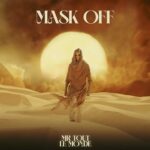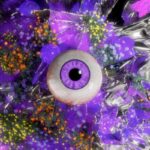Marvel Voices: Pride #1
- Writer
- Alyssa Wong, Grace Freud, Andrew Wheeler, Christopher Cantwell, Danny Lore, Ira Madison III, Charlie Jane Anders
- Artist
- Stephen Byrne, Scott B. Henderson, Lee Townsend, Brittney L. Williams, Kei Zama, Lucas Werneck, Lorenzo Susi, Ro Stein, Ted Brandt
- Letterer
- VC's Ariana Maher, VC's Clayton Cowles
- Cover Artist
- Nick Robles
- Publisher
- Marvel
- Price
- $9.99
- Release Date
- 2022-06-22
- Colorist
- Brittany Peer, José Villarrubia, Rico Renzi, Michael Wiggam, Rachelle Rosenberg, Tamra Bonvillain
Back in 2020, readers were introduced to the first issue of Marvel Voices, a comic series that was born from the podcast of the same name, which spotlighted creators of color working for Marvel. The comic series continues this celebration of diversity, releasing one-shot anthologies dedicated to underrepresented groups. To celebrate Pride Month, editor Sarah Brundstad has assembled a star-studded cast of creators in Marvel Voices: Pride #1, an exciting but imperfect anthology.
Marvel Voices: Pride #1 features seven short stories featuring LGBTQ+ characters and creators from all walks of life. The issue itself is a celebration of LGBTQ+ representation in Marvel Comics, past and present. There are definitely moments that the creators should be proud of, but there are also a few moments where the writing feels more like a corporate appropriation of Pride Month than a celebration of identity.
In "Over the Rainbow," by Ira Madison III, Lorenzo Susi, and Rachelle Rosenberg, Loki seems to appear as a stand-in for rainbow capitalism, but Madison III doesn't fully commit to the commentary or explore the complexities of a queer character using Pride for personal gain. His ploy in "Over the Rainbow" is certainly something one could imagine Loki doing, but he reads as a joke -- not a fully formed character. While Susi's art style lends itself to a more comical, fun story, more could have been done in regard to either committing to the joke or exploring what Asgard's first Pride looks like.
Loki makes another appearance in Alyssa Wong and Stephen Byrne's "All My Exes in the Nexus." He feels more in character here. Loki is taken captive by all their exes, so Loki contacts several of the Young Avengers for help. "All My Exes in the Nexus" is a charming concept, and it feels like a direct continuation of Young Avengers, which is certainly a treat for fans of that team. But it also means some of the characters, Loki in particular, read a little younger than they are depicted in other comics. The story also features America Chavez using her powers in a fun way, as she breaks through the panels to show off her universe-hopping abilities. Plus, there is a radical page that delivers the excitement of a splash page, even though it is composed of many panels. Byrne's page designs create a fluid and dynamic flow of action.
Another dynamic tale in Marvel Voices: Pride #1 is "Stay Outta My Mind Turf, Jack" by Christopher Cantwell, Kei Zama, and Rico Renzi. It kicks off with what seems to be an alternate reality version of Moondragon, who is part of a biker gang. Cantwell and Zama have crafted a punk story about a group of outcasts realizing that the system is rigged against them. Zama's artwork is full of visual Easter eggs and badass bikers.
Charlie Jane Anders, Ro Stein, Ted Brandt, and Tamra Bonvillain's "Permanent Sleepover" is the longest chapter in Marvel Voices: Pride #1. It successfully uses this space to introduce two new characters into the Marvel Universe and establish their friendship. "Permanent Sleepover" introduces Shela Sexton and Morgan Red to readers. The two have been friends since childhood and now work together as mutant thieves. While the action is dynamic, and the art is highly expressive and emotionally evocative, the true stand out of "Permanent Sleepover" are the flashbacks, which are drawn in a cartoony style that evokes Charles Schulz's Peanuts. They're short moments that capture the innocence and love Shela and Morgan have for each other.
Marvel Voices: Pride #1 also includes "Comics De-Coded," an essay by Angélique Roché that should not be overlooked. Roché tackles the complicated issue of queer-coding, something that can often be seen as a negative nowadays. She dives into the history of coding and how it was an essential step towards getting any queer representation onto the pages of Marvel back when the Comics Code explicitly banned depictions of LGBTQ+ characters. Roché looks at several queer-coded Marvel characters from the past who are now openly queer, including Venom and Taku.
Marvel Voices: Pride #1 has highs and lows. It is clear the creators working on this want to celebrate the LGBTQ+ community, and it's exciting to see that they are focusing on LGBTQ+ characters that some fans might not be familiar with. Unfortunately, some of these depictions of queerness feel performative. Unapologetic depictions of the LGBTQ+ experience are more than welcome, but one can't help but notice a few missed opportunities to make some things more biting, radical, or campy. Regardless of these hiccups, the audience is lucky to have Marvel Voices: Pride #1, and it will be exciting to see what the future has in store for these characters, as well as their creators.




